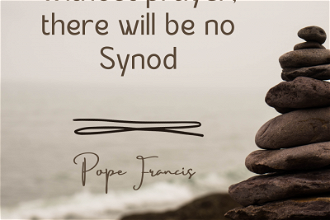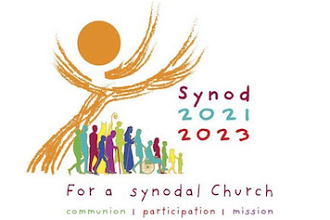Final Message from Synod: 'every family should have its own Bible'
Every family "should have its own Bible and safeguard it in a visible and dignified way" in the home "to read and to pray with it," the Synod of Bishops on the Word of God said in a message to the world's 1.1 billion Catholics.
Archbishop Gianfranco Ravasi, president of the team that drafted the message, presented it at a Vatican press conference on Friday, shortly after the 253 Synod Fathers, from more than 100 countries, most of them bishops, had approved it "by acclamation."
The biblically rich "Message to the People of God" is the first substantial fruit of the three-week synod, which Pope Benedict formally closes at Mass on Oct. 26 in St. Peter's Basilica.
Archbishop Ravasi, a biblical scholar, said the message is primarily addressed to pastors, catechists and all those who guide Catholic communities -- often without priests -- in reading and listening to the word of God in the Scriptures.
It takes readers on a spiritual journey "from all eternity and the infinite nature of God to our homes and the streets of our cities," he said, quoting the document.
The architecture of the message, he explained, uses "four biblical symbols" to illustrate the four "phases" of this journey: "the voice of the Word," which is Revelation; 'the face of the Word," namely Jesus Christ; "the house of the Word," that is the Church; and "the roads of the Word," which is the Mission.
In phase one, God presents himself at the dawn of creation as "a voice [that] tore through the silence of nothing." Again, at the origin of human history, God is "a voice" dialoguing with man and woman. That "voice" then passes into Sacred Scriptures, which bear witness to God's Word in written form.
In this way, Archbishop Ravasi said, the message shows "the Word of God precedes and goes beyond the Bible," for which reason "our faith is not only centered on a book, but on a history of salvation and on a person Jesus Christ."
In phase two, God's Word took on "a human face and identity" by becoming man in Jesus Christ, "the heart of the Christian faith."
The archbishop recalled how Christian tradition drew a parallel between the Word of God made flesh in Jesus, and the Word of God made "flesh" in the Bible. He emphasized that the human language of the 73 books of the Bible needs to be "decoded, studied and understood" as the "Incarnation of the Word" in human history, lest an ahistorical reading lead to fundamentalism.
Conversely, he also said the Scriptures cannot be understood properly without "the living Tradition" of the Church and faith.
In the third phase, Archbishop Ravasi continued, the Word of God made its house in the New Testament, first in the community of believers in
Jerusalem, the model for the Church founded on the apostles. Since its beginning, he said, the Church has rested on "four ideal pillars": preaching the Word of God; breaking bread (both the word and the Eucharist); praying; and fraternal communion.
The fourth phase of the spiritual journey leads onto "the roads of the Word," where people are searching for truth, justice, peace, and hungering for the Word of God. Christians have their mission here, and should use the modern means of communication including Internet and television to communicate, he said. But they should also seek to cooperate with other Christians, with the Jews and the followers of other religions, and with those who profess no religion.
This mission leads to the slums, where there is suffering and poverty, humiliation and oppression, marginalization and misery, as well as to situations of violence, conflict and war.
"This immense sigh of suffering that rises from the earth to heaven," Archbishop Ravasi said, is found in the Bible, which "assures" believers "of the victory of good over evil, in Christ." He added that the Christian has the mission to evangelize, to announce this divine word of hope.
The full text of the Message will be available soon on the Vatican website.





















